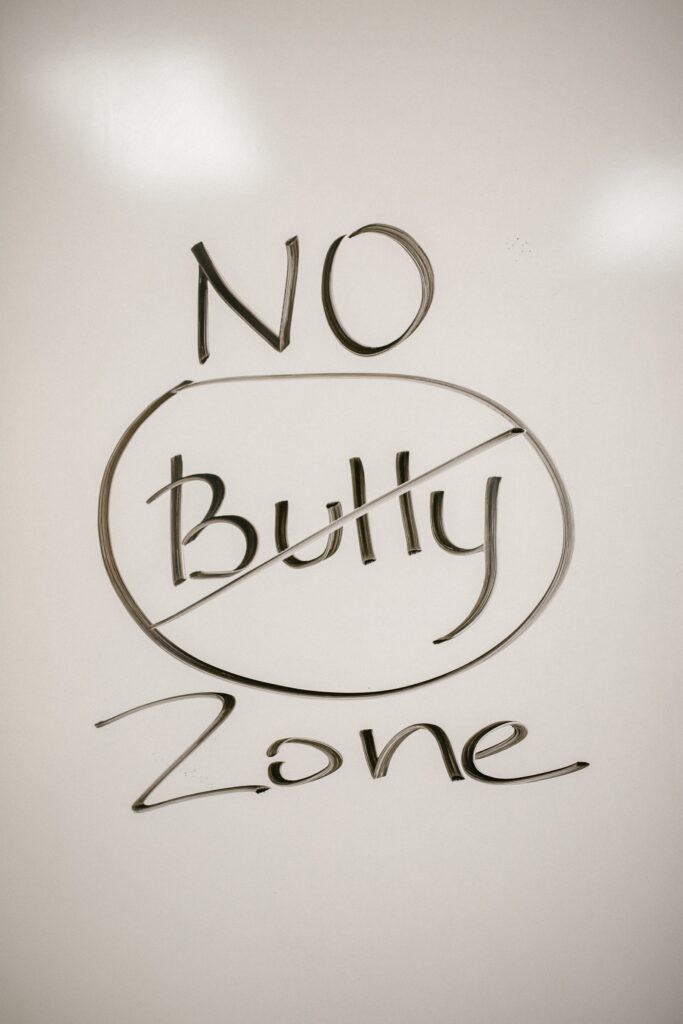
Strategies and tools: Battling bullying in school
Bullying remains a consistent and pervasive issue in schools all over the globe, and Canada is no exception. As youth navigate the complex landscape of adolescence, it is essential to know your resources, tools, and strategies to confront and overcome bullying.
Build a support system
Establishing an expansive and compassionate support system is one of the most effective ways to combat bullying. For youth, confiding in friends, family members, or trusted adults about their experiences is extremely important. A 2022 study found that social support enhances resilience in stressful situations. This network of people who care can provide emotional support and practical advice on handling bullying situations.
Lean on trusted adults
Encourage open communication between students and teachers or school staff. Schools often have anti-bullying policies in place, and reporting incidents promptly can lead to effective intervention. Youth should feel comfortable discussing their concerns with adults who can take appropriate action to address the issue.
Develop confidence and strength
Building resilience and self-confidence is a powerful tool against bullying. Youth should focus on their strengths and talents, recognizing that their unique qualities make them valuable individuals. Engaging in activities they are passionate about can foster self-esteem and resilience, making it easier to navigate challenging social situations.
Online safety and awareness
In the digital age, bullying extends beyond the schoolyard into the online realm. Youth need to be aware of the potential dangers of cyberbullying and practice responsible online behaviour. Encourage them to report any online harassment and, if necessary, seek guidance from parents, teachers, or school counsellors.
Compassion, inclusivity, and empathy
Creating a culture of inclusivity and empathy within schools is essential for preventing bullying. Youth can actively contribute to this by being kind, respectful, and inclusive. Youth can stand up against bullying by supporting classmates and fostering a positive atmosphere that discourages negative behaviours.
Conflict resolution
Teaching conflict resolution skills equips youth with tools to address issues peacefully. Schools can implement programs that educate students on effective communication, empathy, and problem-solving. These skills not only help in resolving conflicts but also contribute to a more harmonious school environment.
Seek professional help
For those experiencing persistent and severe bullying, seeking professional help is crucial. Counsellors, therapists, or support groups can provide guidance and a safe space for individuals to share their experiences. If the bullying has escalated to the point where you are receiving threats or being subjected to physical violence, you may need to contact the police. It is essential for youth to understand that asking for help is a sign of strength, not weakness.

Know your resources
These invaluable resources provide youth with a compassionate and professionally trained adult who can help support them and give them tools to navigate tricky and contentious situations.
Here are some of the resources available to youth experiencing bullying in Canada:
- Phone Number: 1-800-668-6868
- Kids Help Phone offers confidential counselling, information, and resources for young people across Canada. They provide support via phone, text, and online chat.
- Bullying Canada is a national anti-bullying organization that provides support and assistance to individuals affected by bullying. Their website includes information on coping strategies and reporting procedures.
- PREVNet is a national network of researchers, organizations, and individuals dedicated to preventing bullying and promoting safe and healthy relationships for Canadian youth. Their website provides resources and information on bullying prevention.
By equipping young individuals with these tools, society can work towards cultivating a generation of individuals who are resilient in the face of adversity. Additionally, this generation will contribute to creating a safe, compassionate, and supportive environment for everyone.
About the author
Dru Gary (she/they) is a journalist for Youth Mind. She is a queer BIPOC poet and writer and a recent graduate from OCADU with a BFA in Creative Writing. She loves words and the act of stringing them together to create arrangements that are both beautiful and meaningful. They find inspiration in the intangible and attempt to create images out of abstract thought to understand and ground themselves. She ultimately seeks truth and healing through her practice.







